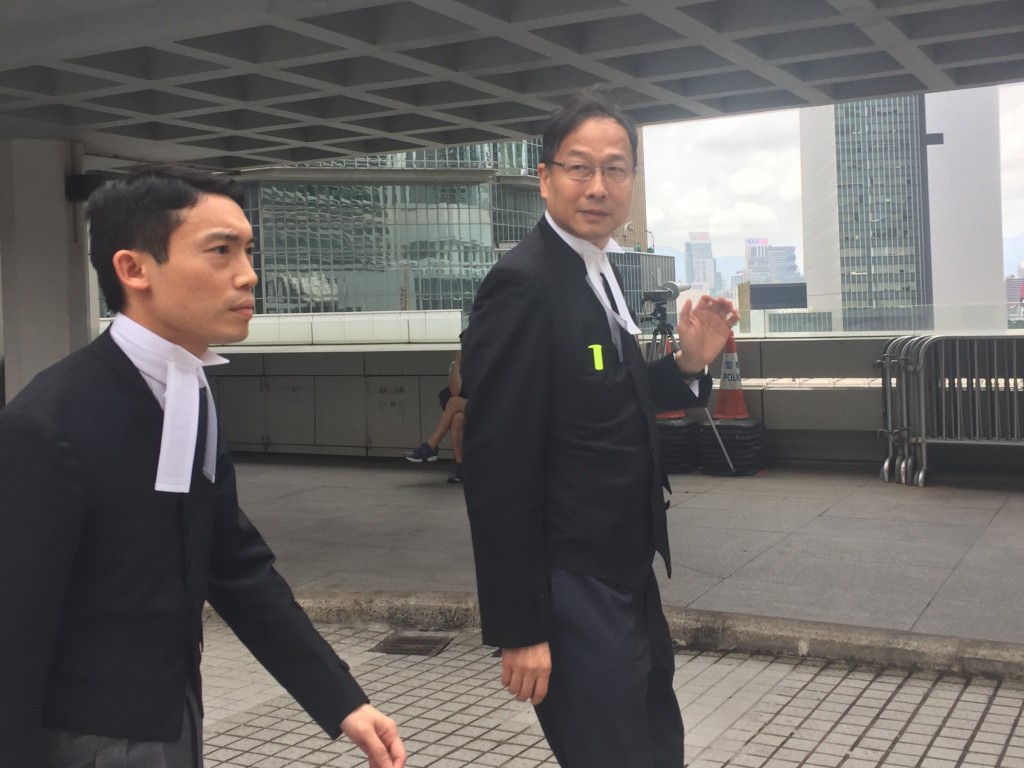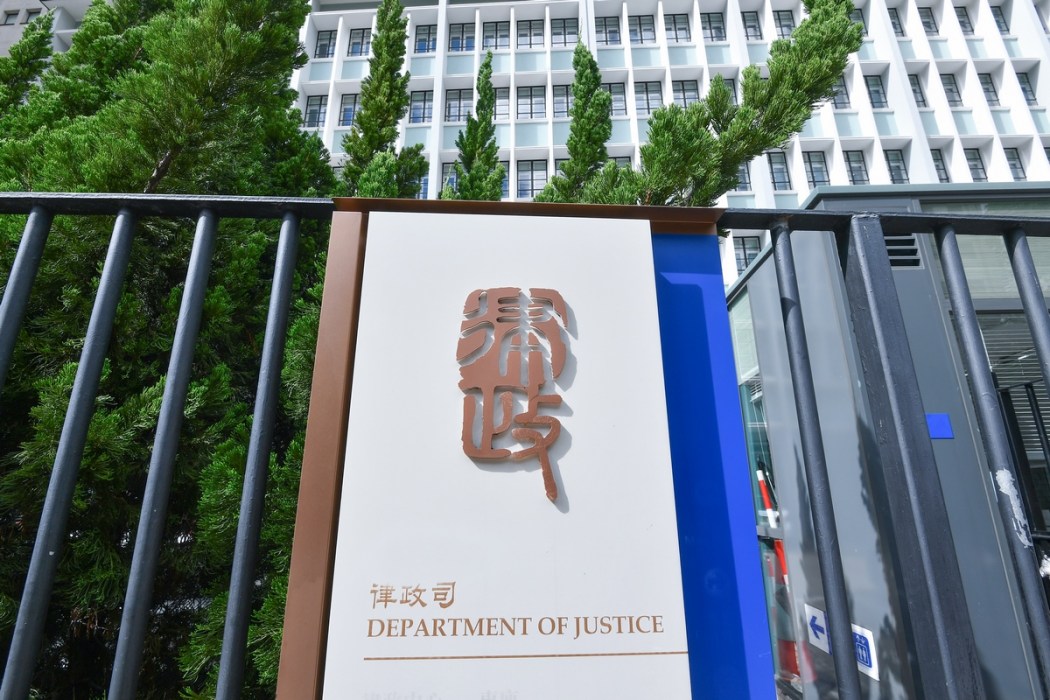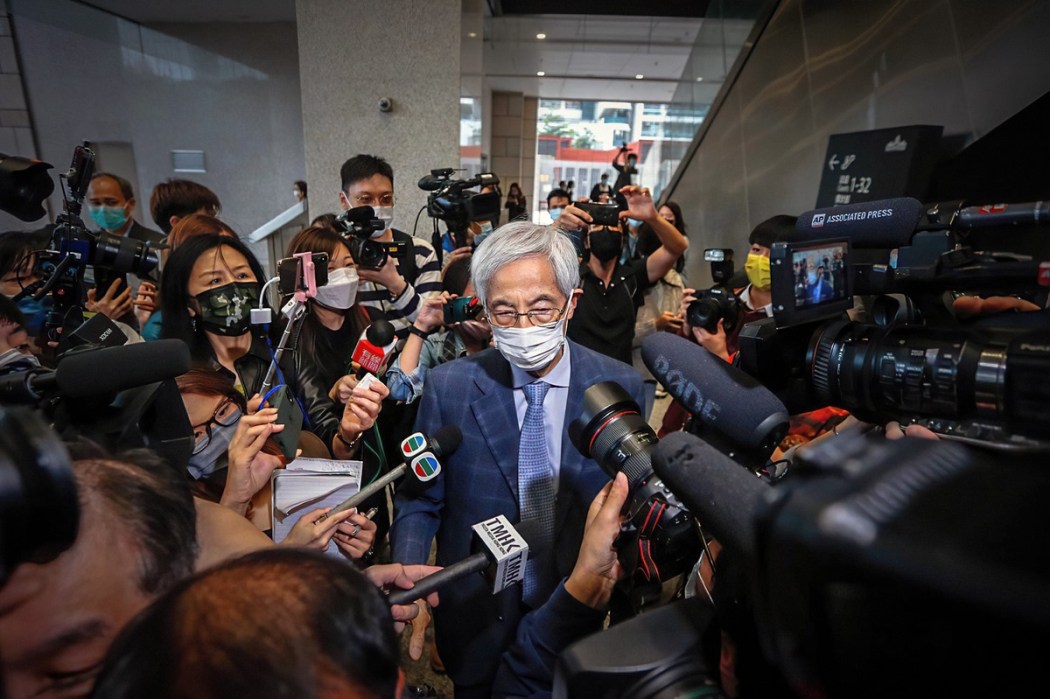The Secretary for Justice proposes that lawyers in her department should be able to become senior counsel, even if they are not junior counsel – the change of title to last only as long as they remain in the department’s employ. Cue disturbed noises from lawyers. What is going on here?
To understand what appears to be a rather arcane dispute, though of some potential public interest, we need to undertake a quick tour of the legal personnel scenery.

Lawyers come in two categories: solicitors and barristers. You must not describe a solicitor as soliciting, because that is the legal euphemism for offering sexual services in the street.
Solicitors are the lawyers you are most likely to meet. They are the first port of call for citizens needing legal help, and usually the only one. You need a solicitor, for example, to complete a property transaction. This is a fairly lengthy and expensive procedure; many of them do little else.
Your solicitor will also appear with you or on your behalf in the more humble courts. For the more prestigious venues he will call on the services of a barrister. The relationship between solicitors and barristers is rather like the relationship between medical GPs and specialists – although if you try to see a specialist he is not obliged to send you away to see a GP first.
Barristers, on the other hand, can only be hired by solicitors. Some exceptions to this rule have recently been introduced in England, which is where all this nonsense comes from, but in principle you have to get a solicitor first.

Barristers’ speciality is arguing in court on your behalf. Lawyers call this “advocacy,” an upmarket way of saying that they need the gift of the gab, which is not usually necessary for solicitors. Barristers also tend to have rotundly up-market accents, which I suppose go down well with judges.
Because barristers are in close contact with ongoing legal arguments they are also regarded as the go-to source for authoritative advice on whatever legal problem is bothering you. For this purpose you still have to employ a solicitor first.
Barristers are in turn divided into two categories: the ordinary, or “junior” version and the more prestigious “senior” version, known in Hong Kong in colonial times as “’Queen’s Counsel” (there is no plural for counsel) and now as Senior Counsel, or SC.
Hong Kong has 105 of these, including those who have retired. And 93 of them are men. No comment.
Becoming a Senior Counsel is intentionally difficult. You have to have ten years of experience and must also display proficiency, legal knowledge and a reasonably unblemished reputation. Appointment is by the Chief Justice. Not every lawyer goes in for this. When you become an SC you become more expensive, you will look embarrassingly out of place in the lower courts, and convention requires the client to hire a “junior” to do your donkey work.

So some lawyers prefer to remain “junior” and put up with the fact that if an interesting case goes to appeal the solicitor will quite possibly recruit a heavyweight with SC after his name to take over. If you get the SC there is no going back. If it doesn’t work out, you just have to become a judge.
You may think this intricate structure is an interesting way of spreading the hapless client’s money liberally around the legal landscape. The Bar Association’s website maintains that despite having a “split profession” which requires litigants to hire at least two lawyers, the costs remain the same. A happy thought if you believe it.
Let us pause briefly here to recall that according to legend there was once a statue outside a courthouse in Ireland. This consisted of a cow with one man pulling it forward by the head, another pulling it back by the tail, and a lawyer milking it.
But to return to Hong Kong, there is one further wrinkle we need to visit, and this is the Higher Rights Assessment Board, which appeared in 2012. The function of this interesting creature is to consider applications from solicitors for the right to argue cases in the High Court and the Court of Final Appeal. Those who pass the board’s scrutiny become ”solicitor advocates” and there are currently 52 of them.
Most of these solicitor advocates are, it appears, in the Department of Justice. The department recruits people qualified as solicitors or as barristers, but it is slightly easier for the solicitors because the department cannot supply a “pupillage” – a year’s work under supervision required of barristers.

The department’s lawyers, of whom there are more than 400, have their own career track, which runs on typical government lines through Government Counsel, Senior Government Counsel, Assistant Principal Government Counsel, Deputy Principal Government Counsel, and Principal Government Counsel to Law Officer.
And this brings us to the problem, as the Secretary for Justice perceives it. A Law Officer, as defined in the previous paragraph, is a person of substance and considerable experience. He has loyally worked his way up the ladder, doing all the things which Government Counsel do, like opposing bail for 17-year-olds accused of penning seditious leaflets, or prosecuting buskers for playing “Glory to Hong Kong”, and he has reached the peak of his profession.
Yet when he appears before the Court of Appeal it is immediately obvious from his attire that he is not an SC or even a barrister. Ms Cheng chose the unfortunate example of a Law Officer appearing before the Court of Final Appeal, but this is not so much a problem because the Court of Final Appeal (like its predecessor in London, the Judicial Committee of the Privy Council) skips the mediaeval costumes and everyone just wears suits.
Whichever court is involved, though, it is difficult to believe that judges are influenced one way or the other. Indeed if a Law Officer was also an SC and wore the appropriate fancy dress (the SC robe is a swish silk affair and there is also, of course, the wig) the judges would still know who he was and where he came from.

This is not, however, the thing which bothers barristers, whose objection – judging from a recent radio performance by a former chairman of the Bar Association – goes like this: becoming a Senior Counsel is not just a matter of status, it involves a certification of legal learning and personal quality. The government’s Law Officers miss out on some aspects of barrister life – they only work for one client and they may be very specialised – and in some respects their personal qualities have not been tested.
Also, being an SC has hitherto been a change for life. Mr Martin Lee, for example, despite being well past any plausible retirement age, still heads the list. The idea that a person might be an SC, and then relinquish this status on leaving the Legal Department, is unprecedented and disruptive.

It looks, in fact, rather as if the Department of Justice wishes to borrow the title for its own purposes and then give it back.
There are other, less public explanations for what is going on. One theory is that the department has found it very difficult in recent years to recruit SCs who were already SCs, which it used to do quite often, and that many SCs have left, sometimes quite early, leaving a shortage.
As a result the department often finds itself deploying Law Officers to argue cases which used to require an SC. Easy solution: make the Law Officer an SC.
A more entertaining suggestion is that this is part of the Liaison Office’s ongoing war with the Bar Association, which the office regards as a subversive organisation currently headed by an “anti-China politician.” If Law Officers become SCs they will also become members of the Bar Association. It’s a small association. The arrival of a few “patriots“ could make all the difference.
This is probably too conspiratorial to be taken seriously. The basic situation is more prosaic. Senior lawyers are reluctant to join or to stay with the Department of Justice. Is that surprising?
Support HKFP | Policies & Ethics | Error/typo? | Contact Us | Newsletter | Transparency & Annual Report | Apps
| HKFP is an impartial platform & does not necessarily share the views of opinion writers or advertisers. HKFP presents a diversity of views & regularly invites figures across the political spectrum to write for us. Press freedom is guaranteed under the Basic Law, security law, Bill of Rights and Chinese constitution. Opinion pieces aim to point out errors or defects in the government, law or policies, or aim to suggest ideas or alterations via legal means without an intention of hatred, discontent or hostility against the authorities or other communities. |
Help safeguard press freedom & keep HKFP free for all readers by supporting our team

More HKFP OPINION:
HKFP has an impartial stance, transparent funding, and balanced coverage guided by an Ethics Code and Corrections Policy.
Support press freedom & help us surpass 1,000 monthly Patrons: 100% independent, governed by an ethics code & not-for-profit.










